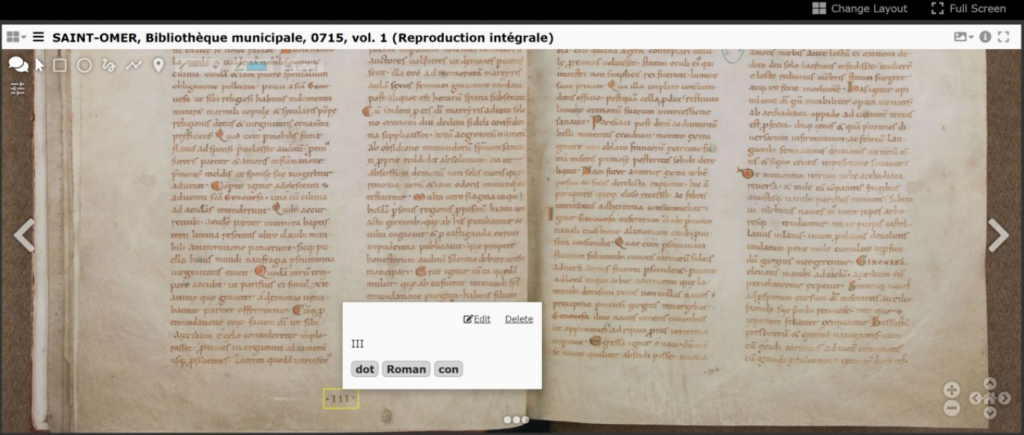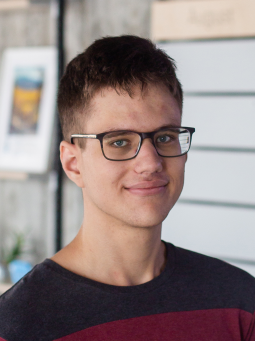QVIRE (Cultural AI): Detecting quire marks from digital facsimiles of medieval manuscripts for their further analysis
At KInIT, we strive for excellence and multidisciplinarity and the QVIRE project contributes to this goal. QVIRE is a multidisciplinary collaboration with historians where we bring historical documents to life using artificial intelligence. This project also serves as a proof of concept to support an ERC grant proposal of a talented young researcher, dr. Evina Stein, who recently received a grant in the ESET ERC mentoring initiative for the Slovak scientific community.
Medieval manuscripts are an important component of the cultural heritage in Slovak and European heritage institutions. The biggest obstacles to traditional paleographic and codicological research of manuscripts have been its high time and financial demands, dependence on big data, and the potential degree of human error or subjective perception. Today, many of these obstacles can be partially or completely mitigated with the help of artificial intelligence. Therefore, its connection with traditional codicology has great potential to advance historical research of European cultural heritage significantly.
Currently, no institution or organization in Slovakia actively uses artificial intelligence applied to written cultural heritage, as is the case in other European countries. The QVIRE project is intended to be the first building block for the establishment of the so-called Cultural AI in Slovakia. As this is a relatively new and dynamically developing area, Slovakia has the chance to become an important actor in this area of applied research in the future and to join the elite European institutions with a similar focus.
The project is realized as a cooperation between KInIT, researchers in the humanities disciplines from the Department of Archive Studies and Museology(Faculty of Arts, Comenius University in Bratislava) and dr. Evina Stein, a Slovak early career researcher currently having the position of a guest researcher at the Huygens Institute in Amsterdam. Due to the nature of the project, emphasis is put on interdisciplinarity and mutual enrichment and transfer of knowledge between researchers from different fields.
Projects goals
The first goal of the project is to bring the know-how in the field of using artificial intelligence in the cultural sector and humanistic research to Slovakia. In this way, we want to help to lay the foundations for the development of the so-called “Cultural AI” in Slovakia. At the same time, this project will serve as a proof of concept to support dr. Evina Stein in her endeavor to obtain the ERC Starting grant. This is in alignment with our mission to support excellent research in Slovakia.
The second goal is to create an AI model and a prototype of a software for analysis of historical manuscripts. This model will be able to automatically extract specific relevant data (in this case, a specific type of marks, see Fig. 1) from digitized medieval manuscripts of different types. The model should be able to adapt to written manuscripts of different types. This prototype, although focused on a specific problem, will potentially serve as a basic component for other projects dealing with the automation of data collection from digitized versions of various types of cultural heritage (e.g. historical documents, newspapers, printed books, works of art, etc.).

We also want to raise the interest of experts from the cultural heritage sector (i.e. museums, galleries, archives and libraries) and the humanities and sciences (i.e. universities and research institutes, including students and doctoral students) about the possibility of applying artificial intelligence in their own research. We organized a webinar to promote the concept of Cultural AI and introduce the results of the project to the wider expert audience.
This project was realized with the financial support of the Prime Minister of the Slovak Republic.
Partners:
- Evina Stein, guest researcher at the Huygens Institute, Amsterdam, expert on mediaeval manuscripts
- Juraj Šedivý, professor, head of the Department of Archive Studies and Museology, Comenius University in Bratislava, expert on historical documents
- Rastislav Luz, archivist and expert on auxiliary sciences of history




